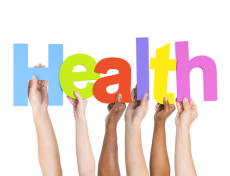

Our health
We all have demands in order to stay fit and healthy. Our bodies require a balanced diet of fruits, vegetables, protein, carbohydrates and fats. Additionally, vitamins and minerals are essential for maintaining a healthy body. An unbalanced diet can lead to a person becoming malnourished, not ideal.
What does metabolism mean?
Metabolism is the chemical processes that occur within a living organism in order to maintain life.
When we exercise we use energy and our metabolic rate is increased because the rate of chemical reactions is increased. Your metabolic rate can be affected by the muscle to fat ratio and your inherited factors.
Energy taken in and energy used needs to be balanced for good health. If the two are equal then your mass will stay the same. Eating too much can lead to being overweight or obesity, but we do not want to eat too little either. There are various health problems associated with diet, such as diabetes, and anorexia.
What is cholesterol?
Cholesterol is a compound of the sterol type found in most body tissues, it is an oil-based substance that does not mix with blood. You may be familiar with it in relation to a fatty diet. It is important to maintain the right level of cholesterol. ‘Good’ cholesterol is required for cell membrane structure and for the production of vital substances. ‘Bad’ cholesterol can lead to heart disease, sadly, some (not many) can inherit high levels of this type of cholesterol. Saturated fat rich foods can increase blood cholesterol levels.
Example question: Why does eating too much make you gain weight?
Answer: The food you are eating contains energy. Any energy that is not used up is considered excess energy. Excess energy is stored in the body as fat.
What are pathogens?
Pathogens can be a bacterium, virus, or any other microorganism that has the potential to cause disease. They cause infectious diseases.
Bacteria and viruses that enter the body replicate (reproduce) rapidly, this can make you feel very ill through them producing toxins. Additionally, viruses replicate inside our cells causing damage to them, this makes you feel ill. Viruses are much smaller than bacteria.
A little bit of history
Bacteria and viruses were not always understood or even know… A doctor named Semmelweiss came to the realisation that infection can be transferred from person to person in hospitals, what is now understood as a communicable disease. As a result, Semmelweiss advised staff to wash their hands after treating patients. Not surprisingly, he was not taken seriously and many ignored him. In 1865, he was committed to an asylum where he died at the age of 47. It was later discovered that Semmelweiss was in fact correct, as washing hands prevents the spread of bacteria and virus through direct contact. The germ theory of disease became fully developed in the 1870s after the remarkable work of Semmelweiss.
image- https://blog.tedmed.com/heres-challenge-can-raise-health/

0 Comment:
Be the first one to comment on this article.